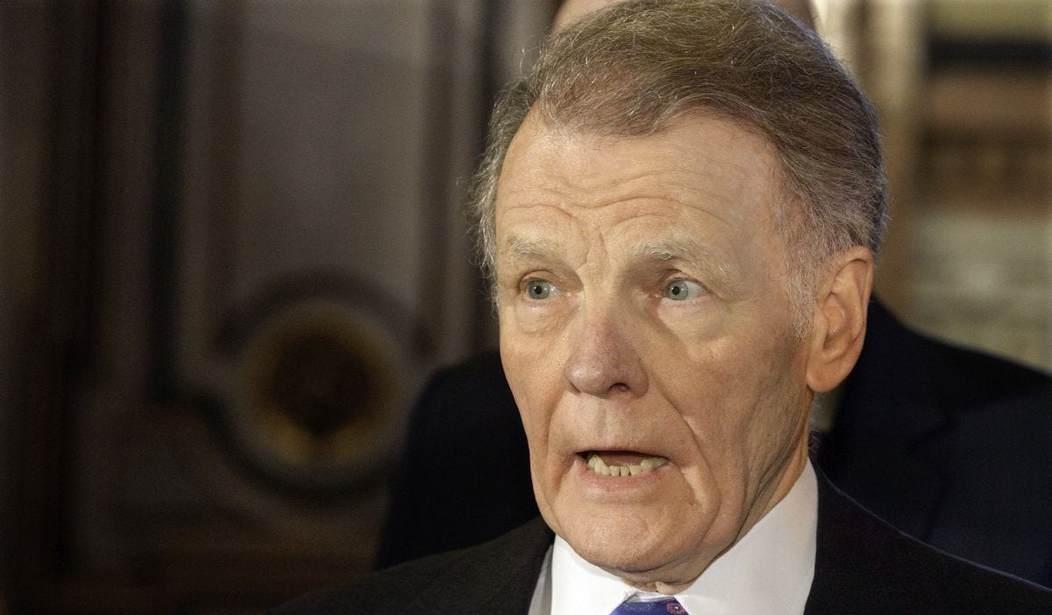The state of Illinois has now been without a budget for three years, but a small glimmer of hope was seen when a bipartisan majority passed a $36.5 billion budget plan authored by the Democrats.
The 2017 fiscal year ended at midnight last night without the legislature agreeing to a budget outline and revenue plan to pay for it. But GOP Governor Bruce Rauner and some Republican legislators have indicated that they will support the Democratic plan — and a whopping $5 billion tax increase to pay for it.
An appropriations amendment passed the Illinois House 90-25, with 23 Republican votes. It must still be read a third time and passed. From there, it needs Illinois Senate approval. Lawmakers are being summoned back into session Saturday.
There’s still a long path to a resolution. Democrats must drum up support not only for the spending plan, but also for a politically unpopular revenue measure. There’s also a need for a measure to pay the state’s $14.7 billion backlog of unpaid bills.
Saturday marks the first day of a new fiscal year — meaning the state will enter its third straight year without a budget. But there were notes of optimism on Friday.
“We’re close. We’re close. But again, I need to be able to sell it to my caucus and look at it as a whole,” Durkin said en route to his second meeting with the speaker, noting the plan needs to include cuts, reforms and revenue.
“Obviously we haven’t reached a consensus on revenue. That is still something that’s open to negotiation,” Durkin said. “But again, the situation is very fluid and I will say that we’re in — the last two days and today —we’re in a better situation than we were the day before.”
Taking the floor after the vote, Madigan thanked Republicans for their support: “I think it’s a good step forward, a step we can build upon.” The speaker also sent letters to credit rating agencies, which had threatened to downgrade the state to “junk” status come July 1 without a budget, imploring them to “temporarily withhold judgment and allow legislators time to negotiate a bipartisan, balanced budget.”
In his letter, Madigan notes pension and procurement reform, local government consolidation and workers’ compensation changes as “compromises” he wants the governor to recognize.
Durkin said he committed Republican votes on the appropriations measure as a “gesture of good faith.”
In other “good faith” gestures, after the appropriations vote, the Gov. Bruce Rauner-led Illinois Republican Party pulled a digital ad that dubbed the speaker “Junk Madigan.”
The Republican cave-in to Democrats on tax increases was inevitable. Democrats have shown absolutely no desire to reform the state’s finances or the ticking time bomb of pensions, or sky-high property taxes. They want more of the same — more spending and higher taxes.
Rauner will get no points for trying. His reforms never had a chance in deep-blue Illinois as Democrats successfully portrayed him as the villain of the budget impasse. His budget elicited howls of outrage from universities, social service groups, and organizations whose livelihoods depend on government funds. Unions and the courts blocked his attempts to reform the pension system. Rauner’s failure will almost certainly make his re-election extremely difficult as he failed to deliver on almost every promise he made during his first campaign.
As for the budget, Republicans are on board the $5 billion tax increase bandwagon, despite bitterness expressed by some conservatives:
But his caucus wasn’t entirely on board. State Rep. Jeanne Ives, R-Wheaton, said the proposed budget continues to fund bad government behavior.
“This budget is a disaster, and this budget is the death knell for Illinois,” Ives said. “It tells every taxpayer who’s capable of moving from the state of Illinois it’s time to pick up stakes and leave. That’s what this budget does.”
Rep. David McSweeny, R-Barrington Hills, echoed Ives sentiments.
“Obviously, things are heading in the wrong direction,” McSweeney said. “Today, the Republicans in the General Assembly raised the white flag to a massive tax increase.”
All House Democrats and 23 Republicans voted for the measure.
The proposed spending doesn’t address the state’s $15 billion bill backlog.
Legislative leaders will meet again today, where tax increases could be discussed. Then they’re back at it Saturday, the first day of the new fiscal year.
Illinois is losing residents and businesses faster than any other state. With taxes certain to go up — a lot — that trend will only accelerate.
Will the last person who leaves the state of Illinois please turn out the lights?










Join the conversation as a VIP Member